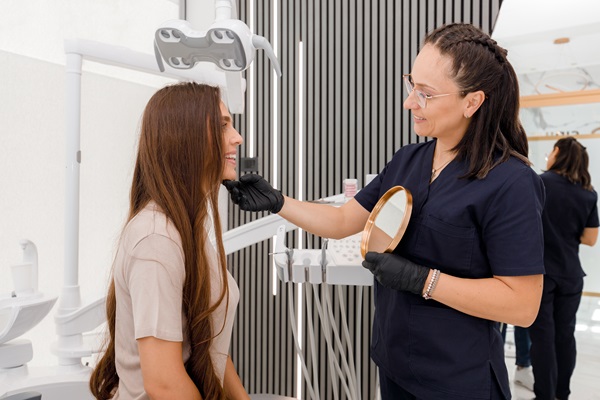The FAQs of Zirconia Crowns

Many are familiar with ceramic and metal crowns but may be less familiar with the unique advantages of zirconia crowns for repairing damaged teeth. This review highlights and answers frequently asked questions about zirconia crowns to help you decide if they may be the right type of dental restoration for you.
Common patient questions about zirconia crowns
Common questions that patients have about zirconia crowns when they are recommended by a dentist include what they are exactly, the benefits and potential drawbacks that they have, how they are applied, and why they are the most recommended solution. Specific answers from a personal dentist are important, but the following provides an overview to help patients learn more about this unique restoration.
What are zirconia crowns?
A zirconia crown is a form of dental restoration that covers a damaged tooth and protects it from further harm. Zirconia crowns, which are made of zirconium dioxide (a tooth-colored ceramic material), match the shade of natural teeth while offering superior strength and durability compared to other tooth-colored restorations.
What are the benefits of zirconia crowns?
Zirconia crowns are the best of two worlds. They offer strength similar to that of metal crowns and have a tooth-colored appearance similar to porcelain crowns. They also are highly compatible with the gums. Due to the benefits of zirconium, many dentists recommend them when the patient wants the highest quality crown restoration possible.
How are zirconia crowns applied?
Zirconia crowns are applied the same as other dental crowns. This process involves preparing the tooth, which may involve removing some enamel to ensure an ideal fit. An impression is taken of the tooth receiving the crown, and a temporary crown is placed. Once the zirconia crown is ready, the patient can return to the office for the permanent fitting.
When should I choose zirconia crowns?
There are no drawbacks to the quality of zirconia crowns. However, they do cost more than the average dental crown restoration. Therefore, they are most ideal for patients who want the highest quality restoration possible and do not mind paying a higher price. They work well for most teeth, including highly visible teeth and those in the back of the mouth.
How long do zirconia crowns last?
Zirconia crowns can last for a decade or longer if they are cared for properly through ensuring good oral hygiene, avoiding foods that damage the gums, and visiting the dentist for regular check-ups and cleanings. In many cases, patients can wear their zirconia crowns for a lifetime without needing major repairs or replacement.
Schedule a consultation to discuss zirconia crowns
Zirconia crowns are ideal for imporivng your smile and repairing the health and function of your teeth. If you are interested in zirconia crowns and would like to schedule a consultation, do not hesitate to give our friendly and professional team a call today.
Request an appointment here: https://uptownnycdental.com or call Uptown Dental Group at (646) 666-0757 for an appointment in our New York office.
Check out what others are saying about our services on Yelp: Zirconia Crowns in New York, NY.
Related Posts
Is it time for a smile makeover? If you look in the mirror and do not like your teeth, there are things you can do to change it. Your general dentist can offer various treatments and procedures to revive your smile and give you the appearance you have always wanted. Your dentist can discuss your…
For complete smile restoration, patients can undergo a full mouth reconstruction. Rather than treating one problem at a time, mouth reconstruction is a multi-faceted procedure for restoring your smile. Patients whose smiles are damaged or uneven may feel overwhelmed or even discouraged. Thankfully, modern dentistry offers many solutions for dental restoration.A full mouth reconstruction, or…
It is essential to visit a family dentist every six months to maintain proper oral health. While it is possible to keep the teeth and gums suitably clean with appropriate brushing and flossing techniques, excellent home care is never a substitute for professional cleanings and preventative care. However, there are more benefits to routine dental…
Clear aligners, also called invisible aligners, are transparent aligner trays that are considered an aesthetic alternative to traditional braces. They are produced from medical-grade thermoplastic material. The aligner trays put pressure on the teeth in critical areas to move them in the right direction. Teeth straightening with clear aligners can include up to 30 trays,…
